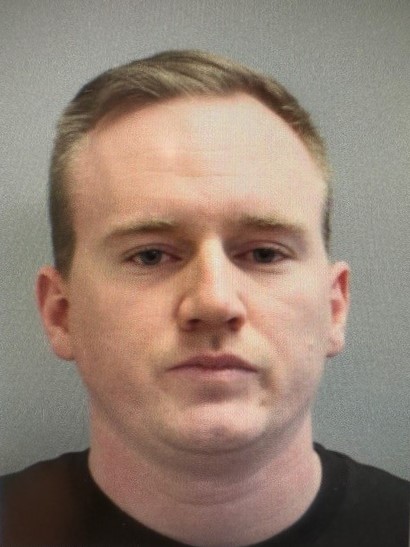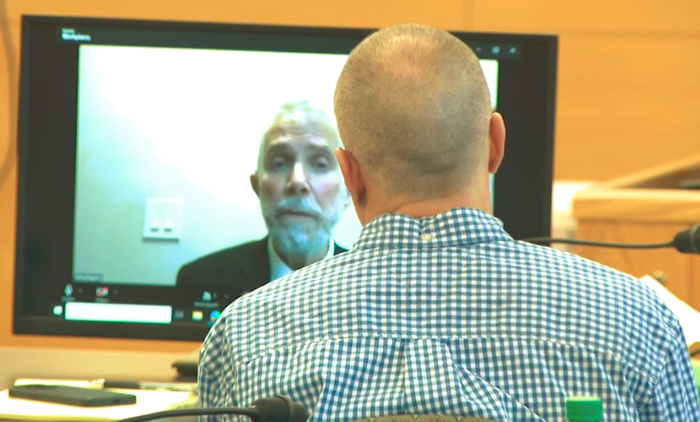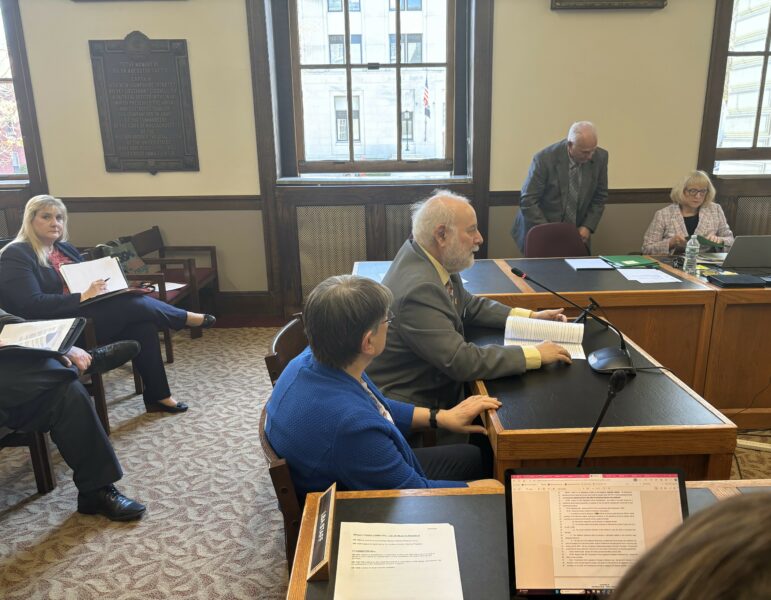
By GARRY RAYNO, InDepthNH.org
In the film “All the President’s Men,” in an underground parking garage in a paranoid Washington, D.C. in the middle of the night, Deep Throat tells Bob Woodward “follow the money.”
Although it is unlikely those were the exact words uttered by Deep Throat Federal Bureau of Investigation Associate Director Mark Felt, the same holds true today.
Following the money is extremely important during the time legislative budget writers craft the biennial budget for the next two years and now that Gov. Chris Sununu has vetoed legislators’ two-year plan.
The budget was vetoed although the difference between what Sununu proposed in February, $13.1 billion in total spending, and what the legislature’s committee of conference produced, $13.3 billion, is but a $200 million or 1.5 percent difference.
Behind veto
The key to Sununu’s reasoning is twofold: a projected surplus of $260 million Democratic lawmakers used to offset spending over the biennium leaving about $20 million, and what he calls increases in business taxes that Democrats describe as stabilizing the rates at calendar year 2018 levels after previous rate reductions.
But Sununu and budget writers all agree revenues over the next two years without any adjustments from those in fiscal 2019 are likely to be lower.
Sununu projects state general fund spending will decrease from $2.64 billion, the actual number at the end of June is $2.67 billion, to $2.52 billion in fiscal 2020 and 2021.
In the compromise agreement between the House and Senate approved by lawmakers last month down party lines, the projections are $2.63 billion in 2020 and $2.62 billion in 2021.
The $2.67 billion figure for the 2019 fiscal year is on a cash basis, i.e. accounting adjustments have not been made to ensure fiscal 2019 revenue is really 2019 revenue and not 2020 receipts.
Looking at last fiscal year’s final month signals a few warnings ahead.
June, which is the third largest revenue producing month for the state, behind March and April, was $4 million below estimates, although the total for the fiscal year shows a $198 million revenue surplus, almost entirely driven by an $187 million surplus in business tax revenues from the business profits and business enterprise taxes.
However, for the month of June, business taxes were almost exactly on target at $108.4 million for a $500,000 surplus although the business enterprise tax was below estimates by $1.6 million, while the business profits tax was over estimates by $2.1 million.
Business enterprise tax
The business enterprise tax is a hybrid value added tax that more closely tracks current business trends while the business profits tax uses a longer view.
According to the Department of Revenue Administration, “the decrease in June revenues can be attributed to a decrease in return, estimate, extension, and tax notice payments as well as an increase in refund payments over the same period last year.”
In English that means more companies overpaid for the fiscal year and seek a refund, and companies are paying a little less going forward as they look ahead to their potential tax liability in the next year.
The booming growth in business taxes that has fueled the robust returns is slowing, not necessarily reversing, but the smoke is dissipating.
One month’s returns may not drive the biennium’s revenue estimates, but they are worth reviewing when some levies are producing substantially less than anticipated like liquor revenues which was off by $3.7 million for June.
Liquor revenues have been below estimates all year and ended fiscal 2019 with a $15.7 million deficit from plan and $6.3 million less than what was produced in 2018.
Alcohol in general took a dive in fiscal 2019 as the beer tax was $500,000 below estimates and $300,000 below last year.
The tobacco tax showed a similar decline, short $15.7 million in fiscal 2019 from plan, and $17.4 million short of 2018.
Liquor, tobacco and the rooms and meals taxes traditionally indicate the health of the tourism industry.
The rooms and meals tax has been a steady, reliable performer for many years and continues in that vain, producing $348.3 million in fiscal 2019, which is $1.8 million more than estimates and $18.3 million more than a year ago.
Drinking less?
So either people are smoking and drinking less, or the competition has caught up to New Hampshire which has traditionally kept its tobacco tax and liquor prices well below other states.
The liquor industry — particularly wine — has become much more competitive through on-line retailers, and tobacco sales have steadily declined, but may see a bit of a boost with the inclusion of vaping materials this fiscal year.
Both Sununu’s and lawmakers’ projected revenues show increases in the rooms and meals tax, although the House and Senate show a much greater increase.
Sununu believes liquor revenues will improve in the next biennium, but lawmakers do not, and similarly Sununu projects an increase in the tobacco tax and lawmakers a decrease.
Other tax indicators of business activity are also a mixed bag.
The interest and dividends, real estate transfer, communications and insurance taxes traditionally indicate overall business activity along with the business taxes.
But changing technology is taking its toll on the communications tax producing less revenue than it did a year ago with the decrease in landlines.
The real estate transfer tax, which until last fiscal year, reflected the booming market has slowed due to higher prices and less inventory and this fiscal year is $10.6 million below estimates of $164 million.
However the other two taxes are above estimates for fiscal 2019, the insurance tax showing a $23 million surplus and the interest and dividends levy $16.1 million to the good.
The governor and legislative budget writers agree the interest and dividends tax will grow in the new biennium, but modestly, and the communications tax will decrease.
They also agree the real estate transfer tax will grow, Sununu believes the tax will be the same for both years of the biennium, while lawmakers believe it will grow both years.
They disagree on the the insurance premium tax with the governor believing it will grow and lawmakers say it will decrease.
The topsy turvy nature of the state’s traditional revenues illustrates a changing economic landscape that may lead — out of necessity — to some not so minor adjustments.
Lawmakers, particularly in the Senate, saw this coming and changed how the business profits tax is apportioned to help New Hampshire businesses taxwise, while requiring national businesses based elsewhere to pay more.
Inelastic tax system
New Hampshire has always had an inelastic tax system, slow to respond to economic trends, meaning revenues do not rebound as quickly after a downturn as they do in most other states.
A perfect example of the inelasticity is the state’s highway fund from vehicle registrations and the gas tax. Car registrations have not changed dramatically over time, but the type of vehicles using the state’s roadways have.
For some time, highway funds have been decreasing with the increase of electric and hybrid vehicles whose owners pay much less in gas taxes.
The result has been a real falloff in what the Department of Transportation can spend on state roads as opposed to the turnpike system funded with tolls.
But multiple attempts to address the issue by making owners of electric and hybrid vehicles pay more to offset the loss of gas tax revenues have hit a barrier from anti-taxers and vehicle owners.
But a look at the state’s tax system as one fiscal year ends and another begins also highlights the lines drawn over the two-year budget by Sununu and the Democratic leadership.
Yes it is understandable Sununu would say the budget plan is unsustainable beyond this biennium, and Democrats saying there have been enough business tax cuts and it is time to stabilize the rates.
And neither Sununu nor the Democrats are talking about rethinking the state’s revenue system in today’s rapidly changing economy.
Wayfair decision
The Wayfair federal court decision allowing states to collect their sales taxes from internet sales in another state has the state in an uproar, as does the internet gambling prohibition the Trump administration tried to impose last year.
The sales tax decision hits at the heart of “no broad-based taxes” New Hampshire, while the internet gambling prohibition would have literally halted much of the Lottery Commission’s activities.
There will be more and more incidents like this as laws and state budget writers try to catch up with the technology.
It is always good to follow the money. If you do not, you may be impacted in new and significant ways, both in taxes and government services.
If the money dries up, so will the services because that is the way government works.
Garry Rayno may be reached at garry.rayno@yahoo.com
Distant Dome by veteran journalist Garry Rayno explores a broader perspective on the State House and state happenings for InDepthNH.org. Over his three-decade career, Rayno covered the NH State House for the New Hampshire Union Leader and Foster’s Daily Democrat. During his career, his coverage spanned the news spectrum, from local planning, school and select boards, to national issues such as electric industry deregulation and Presidential primaries. Rayno lives with his wife Carolyn in New London. InDepthNH.org is New Hampshire’s only nonprofit, online news outlet dedicated to holding government accountable and giving voice to marginalized people, places and ideas.





